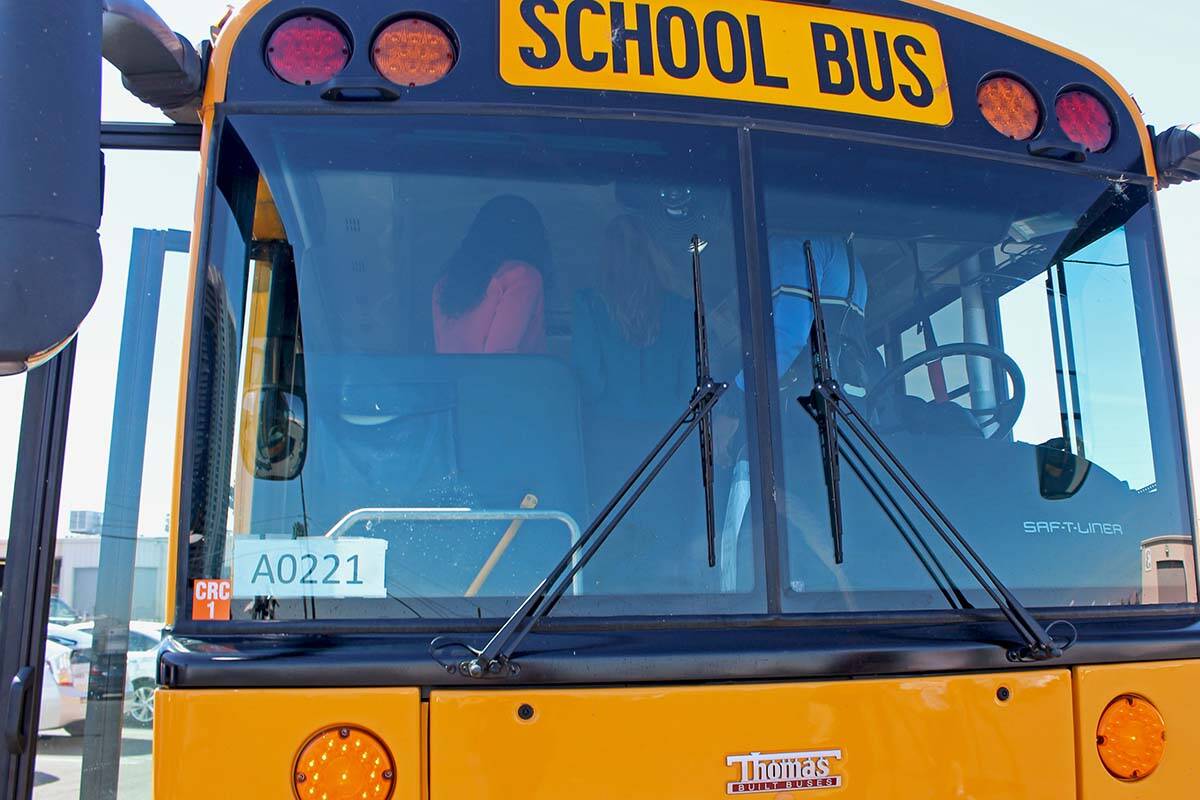Las Vegas area schools ranked second-worst in nation for quality
A new national report ranks the Las Vegas region second-worst for school quality among the nation’s 50 largest metropolitan areas.
The “America’s Best and Worst Metro Areas for School Quality” report by the Thomas B. Fordham Institute and U.S. Chamber of Commerce looked at pre-COVID-19 pandemic standardized test score data and high school graduation rates for its rankings.
The report placed the Las Vegas area — which encompasses all public schools, including the Clark County School District and charter schools — 49th out of 50, ahead only of the Honolulu, Hawaii, metropolitan area.
The Las Vegas area “performs really poorly across the board” in the metrics researchers examined, said Adam Tyner, associate director of research for the Fordham Institute, a conservative national education think tank.
Tyner said the ratings were largely based on student academic growth — “very uncorrelated with raw academic achievement” — but added, “The truth is Las Vegas is one of the few places that looks bad at either raw academic achievement (or) growth-focused outcomes.”
Some big school districts rated high
Meanwhile, Miami; Memphis, Tennessee; McAllen, Texas; Atlanta; and Indianapolis were the top five in the new report, with Los Angeles coming in sixth.
The report notes several large countywide school districts “do quite well,” but points to Las Vegas and Raleigh, North Carolina as “counterexamples.”
In response to a request for comment, the Clark County School District said that Superintendent Jesus Jara has “dedicated his time to make sure that all children receive an exceptional education” since assuming the post in 2018.
“Focusing on the issues influencing student outcomes and impacting their ability to actualize their full potential was the impetus for creating the Superintendent’s Student Equity and Access Commission,” the district said in a statement.
“While we see that achievement gaps among different student groups exist, these gaps exist throughout the nation and must be addressed. The district remains committed to preparing students for college, career and real life; giving families access to effective education options.”
Rebecca Feiden, executive director of the Nevada State Public Charter School Authority, which oversees most Las Vegas-area charter schools, said in a statement Wednesday that the agency “remains committed to provide high quality educational options to students across our state and will be reviewing the details of this new report to understand how this information can help us to continue to deliver on our commitment to Nevada’s children.”
Researchers looked at spring state assessment data from 2009 to 2018 for third through eighth graders in math and English language arts using the Stanford Education Data Archive and graduation rates from the U.S. Department of Education.
Testing data was “renormed” based on state performance on the National Assessment of Educational Progress (NAEP), allowing researchers to make comparisons across state lines for the first time, Tyner said.
“No one had really leveraged that data to try to gain an understanding of how different metro areas were performing,” he said.
Four factors considered
Rankings in the new report were based largely on academic growth (60 percent weight), but also measured academic growth among disadvantaged students, which it defined as Black, Hispanic and the economically disadvantaged (20 percent weight).
Lesser factors were a 10 percent weight for metropolitan area progress in average achievement from the earliest period of data (2009-11) to the most recent (2016-18) and 10 percent for high school graduation rates (2016-18).
In individual categories, the Las Vegas area ranked 49th for academic growth, 42nd for growth among disadvantaged students, 28th for metropolitan area progress and 42nd for high school graduation rate.
The Las Vegas area performed toward the middle of the pack when it comes to metropolitan area progress over time, Tyner said.
“There has been at least some progress over the last 10 years or so,” he said.
There are currently struggles due to the COVID-19 pandemic, he acknowledged, but added that this is a good time to rethink priorities locally rather than striving to just get back to a pre-pandemic “normal.”
Contact Julie Wootton-Greener at jgreener@reviewjournal.com or 702-387-2921. Follow @julieswootton on Twitter.























